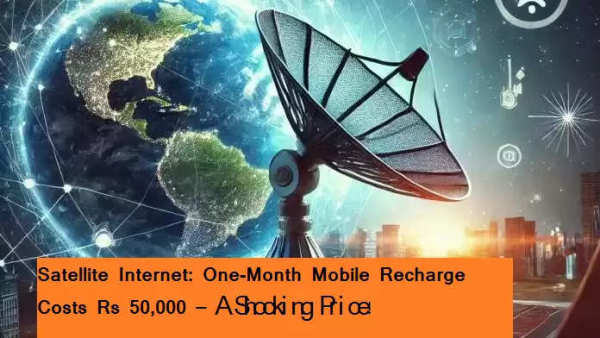
The Internet Speed Crisis in Pakistan
Pakistan has long struggled with slow internet speeds, attributed to both government censorship and damage to submarine cables. To address this, the government is working towards launching satellite internet services to ensure high-speed connectivity. However, the cost of this service might make it inaccessible to the general public.
Elon Musk's Starlink satellite internet is set to launch in Pakistan. While promising internet speeds ranging from 50 Mbps to 250 Mbps, the service comes with hefty price tags:
The hardware includes a receiver that connects to Starlink satellites in low-earth orbit. For context, the hardware price alone is equivalent to the cost of a premium smartphone!
Starlink is also offering a business plan for enterprises:
This plan targets businesses needing faster speeds and higher bandwidth.
For households, a residential plan is available:
Even this "basic" plan is beyond the reach of the average Pakistani citizen.
Satellite internet works by using thousands of satellites in low-earth orbit that beam internet signals directly to the ground. Unlike traditional broadband, it does not require wires, towers, or underground cables. However, a receiver device (hardware) is essential to connect to the satellite internet.
While satellite internet may solve Pakistan's speed issues, its cost remains a significant barrier. With monthly recharges costing as much as ₹50,000, the service caters mainly to high-income individuals and businesses.
Will satellite internet bridge the digital divide in Pakistan or widen the gap further? Only time will tell.